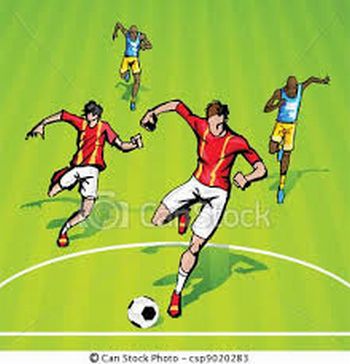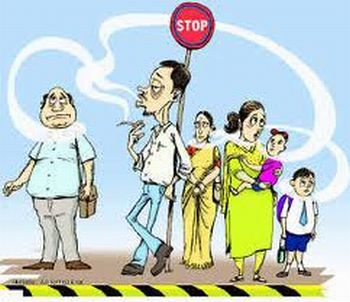17/07/2013
Eliana Dias e Lazuíta Goretti de Oliveira
| Modalidade / Nível de Ensino | Componente Curricular | Tema |
|---|---|---|
| Ensino Médio | Língua Estrangeira | Competência comunicativa: componentes linguísticos, sociolinguísticos e pragmáticos |
| Ensino Médio | Língua Estrangeira | Compreensão oral |
| Ensino Médio | Língua Estrangeira | Compreensão leitora |
| Ensino Médio | Língua Estrangeira | Produção escrita |
| Ensino Médio | Língua Estrangeira | Competência pluricultural: língua como meio de acesso às manifestações culturais |
| Ensino Médio | Língua Estrangeira | Produção oral |
| Ensino Fundamental Final | Língua Estrangeira | Aspectos morfológicos, sintáticos e fonológicos |
O que o aluno poderá aprender com esta aula
- expressar ordem, dever, obrigação e proibição;
- formular sentenças expressando ordem, dever, obrigação e proibição;
Duração das atividades
Conhecimentos prévios trabalhados pelo professor com o aluno
Para essa aula, é necessário o aluno ter noções do presente simples dos verbos em inglês.
Estratégias e recursos da aula
- Laboratório de informática com acesso a internet;
- slides, datashow, notebooks;
- xerox / material impresso.
FIRST STEP: Introduzindo o tema da aula
Atividade 1: Reading comprehension
- Professor, projete o seguinte diálogo no datashow, pedindo para que os alunos se revezem na leitura.

Joshua: Uh-huh.
Randall: Now what kinds of things do you have to take to school?
Joshua: I have to take my taiso fuku, that is gym clothes, and I have to take my backpack and my books [ Oh, okay. ] and stuff like that.
Randall: Okay and what is the first thing you have to do when you get to school?
Joshua: We have to do "kiritsu, rei."
Randall: "Kiritsu" and "rei." Now what are those?
Joshua: It means "stand up, bow."
Randall: Stand up and bow.
Joshua: Uh-huh.
Randall: And what do you have to study at school?
Joshua: We have to study kokugo, that is writing and reading and stuff like that [ Okay ], and sansu, that's math. [ Okay. ]. And, let's see . . . , we have to do gym too.
Randall: Okay, and where do you eat lunch? Do you have to eat in the lunchroom or cafeteria?
Joshua: No, we have to eat in our classroom.
Randall: You eat in your classroom! [ Yeah. ]. Oh wow. That is very interesting. Now what time should you come home from school?
Joshua: We should come home sometimes at 3:00 and sometimes at 2:00.
Randall: Okay, well thank you very much Joshua.
Joshua: You're welcome.
Em seguida, faça as seguintes perguntas aos alunos sobre o diálogo:
a) Do que eles estão falando?
b) O que Joshua tem que levar à escola?
c) O que significa "kiritsu, rei."?
d) Onde Joshua tem que tomar lanche?
e) A que horas ele tem que ir para casa?
- Professor, após a discussão das perguntas, direcione a leitura do diálogo a fim de que os alunos percebam que, de modo geral, Joshua está descrevendo algumas regras a serem seguidas em sua escola. Peça para que destaquem, no diálogo, exemplos dessas regras. Se possível, reescreva no quadro as frases em que as regras aparecem, sublinhando os tempos verbais que indicam uma obrigação ou uma regra. (No caso do diálogo, o verbo que indica obrigação ou dever é o have to).
Atividade 2: Projete no datashow o seguinte texto, que contém informações sobre verbos que expressam obrigação, necessidade, proibição e conselho. Peça para que os alunos realizem a leitura, observando se há a participação de todos, criando um ambiente mais interativo.
EXPRESSING OBLIGATION, NECESSITY, PROHIBITION AND ADVICE
1) Have to (objective obligation)
We often use have to to say that something is obligatory, for example:
- Children have to go to school.
Note that we can use the have to expression in all tenses, for example:
I have to (present), I had to (past), I have had to (present perfect), I will have to (future)
Structure of Have to
Have to is often grouped with modal auxiliary verbs for convenience, but in fact it is not a modal verb. It is not even an auxiliary verb. In the have to structure, "have" is a main verb. The structure is:
subject + auxiliary verb + have + infinitive (with to)
Look at these examples in the simple tense:
| subject |
auxiliary verb |
main verb have |
infinitive (with to) |
||
| + |
She |
has |
to work. |
|
|
| - |
I |
do not |
have |
to see |
the doctor. |
| ? |
Did |
you |
have |
to go |
to school? |
Use of Have to
In general, have to expresses impersonal obligation. The subject of have to is obliged or forced to act by a separate, external power (for example, the Law or school rules). Have to is objective. Look at these examples:
- In France, you have to drive on the right.
- In England, most schoolchildren have to wear a uniform.
- John has to wear a tie at work.
In each of the above cases, the obligation is not the subject's opinion or idea. The obligation is imposed from outside.
We can use have to in all tenses, and also with modal auxiliaries. We conjugate it just like any other main verb. Here are some examples:
|
|
subject |
auxiliary verb |
main verb have |
infinitive |
|
| past simple |
I |
|
had |
to work |
yesterday. |
| present simple |
I |
|
have |
to work |
today. |
| future simple |
I |
Will |
have |
to work |
tomorrow. |
| present continuous |
She |
Is |
having |
to wait. |
|
| present perfect |
We |
have |
had |
to change |
the time. |
| modal (may) |
They |
May |
have |
to do |
it again. |
Adaptado do site: http://www.englishclub.com/grammar/verbs-modals-have-to-must-not-1.htm (acesso em 06.07.2013)
2) Must (subjective obligation)
We often use must to say that something is essential or necessary, for example:
- I must go.
Structure of Must
Must is a modal auxiliary verb. It is followed by a main verb. The structure is:
subject + must + main verb
The main verb is the base verb (infinitive without "to").
Look at these examples:
| subject |
auxiliary must |
main verb |
|
| I |
must |
go |
home. |
| You |
must |
visit |
us. |
| We |
must |
stop |
now. |
Like all auxiliary verbs, must CANNOT be followed by to. So, we say:
- I must go now. (not *I must to go now.)
Use of Must
In general, must expresses personal obligation. Must expresses what the speaker thinks is necessary. Must is subjective. Look at these examples:
- I must stop smoking.
- You must visit us soon.
- He must work harder.
In each of the above cases, the "obligation" is the opinion or idea of the person speaking. In fact, it is not a real obligation. It is not imposed from outside.
It is sometimes possible to use must for real obligation, for example a rule or a law. But generally we use have to for this.
We can use must to talk about the present or the future. Look at these examples:
- I must go now. (present)
- I must call my mother tomorrow. (future)
We cannot use must to talk about the past. We use have to to talk about the past.
Fonte: http://www.englishclub.com/grammar/verbs-modals-have-to-must-not-2.htm (acesso em 06.07.2013)
3) Must not, Mustn't (prohibition)
We use must not to say that something is not permitted or allowed, for example:
- Passengers must not talk to the driver.
Structure of Must not
Must is an auxiliary verb. It is followed by a main verb. The structure for must not is:
subject + must not + main verb
The main verb is the base verb (infinitive without "to").
Must not is often contracted to mustn't.
Look at these examples:
| subject |
auxiliary must + not |
main verb |
|
| I |
mustn't |
forget |
my keys. |
| You |
mustn't |
disturb |
him. |
| Students |
must not |
be |
late. |
NB: like all auxiliary verbs, must CANNOT be followed by "to". So, we say:
- You mustn't arrive late. (not You mustn't to arrive late.)
Use of Must not
Must not expresses prohibition - something that is not permitted, not allowed. The prohibition can be subjective (the speaker's opinion) or objective (a real law or rule). Look at these examples:
- I mustn't eat so much sugar. (subjective)
- You mustn't watch so much television. (subjective)
- Students must not leave bicycles here. (objective)
- Policemen must not drink on duty. (objective)
We can use must not to talk about the present or the future:
- Visitors must not smoke. (present)
- I mustn't forget Tara's birthday. (future)
We cannot use must not to talk about the past. We use other structures to talk about the past, for example:
- We were not allowed to enter.
- I couldn't park outside the shop.
Fonte: http://www.englishclub.com/grammar/verbs-modals-have-to-must-not-3.htm (acesso em 06.07.2013)
4) Should
Should is an auxiliary verb, a modal auxiliary verb. We use should mainly to:
- give advice or make recommendations
- talk about obligation
- talk about probability and expectation
- express the conditional mood
- replace a subjunctive structure
Structure of Should
subject + should + main verb
The main verb is always the bare infinitive (infinitive without "to").
|
|
subject |
auxiliary verb |
main verb |
| + |
He |
should |
go. |
| - |
He |
should not |
go. |
| shouldn't |
|||
| ? |
Should |
he |
go? |
Notice that:
- Should is invariable. There is only one form of should.
- The main verb is always the bare infinitive. We cannot say: He should to go.
There is no short form for should. The negative should not can be shortened to shouldn't.
Use of Should
should: Giving advice, opinions
We often use should when offering advice or opinions (similar to ought to):
- You should see the new James Bond movie. It's great!
- You should try to lose weight.
- John should get a haircut.
- He shouldn't smoke. And he should stop drinking too.
- What should I wear?
- They should make that illegal.
- There should be a law against that.
- People should worry more about global warming.
Fonte: http://www.englishclub.com/grammar/verbs-modal-should.htm (acesso em 06.07.2013)
SECOND STEP: Escrita e produção Oral
Atividade 3: Professor, peça para que os alunos, em duplas, elaborem frases descrevendo algumas regras da sua escola. Ajude com o vocabulário, quando necessário. Mostre imagens que sugiram tais regras, como abaixo.
a) I have to eat at 10.

Fonte: http://www.google.com.br/search?hl=pt-BR&site=imghp&tbm=isch&source=hp&biw=1024&bih=600&q=eat+at+10&oq=eat+at+10&gs_l=img.3...1735.3765.0.4300.9.8.0.1.0.0.189.575.6j2.8.0...0.0.0..1ac.1.17.img.kcqPn5jzUp4 (acesso em 07.07.2013)
b) I have to wear a uniform.

c) I have to do homework everyday

d) I have to listen to the teacher.

e) I have to be quiet during the lessons.

f) I have to respect my teachers.

- Para a correção das frases, peça para que os alunos escrevam suas frases no quadro. Sugira que a correção seja realizada por eles mesmos, criando um ambiente descontraído e interativo.
- Como variação da produção anterior, ou mesmo como atividade para casa, peça para os alunos elaborarem frases descrevendo suas obrigações em casa (housework). Ajude com o vocabulário, se necessário. Algumas sugestões de 'housework': clean the bathroom; tidy my room, do the dishes, do the washing up, do the laundry, iron the clothes, make my bed, set the table, etc. Imagens podem ser levadas para a sala de aula, facilitando a elaboração das frases pelos alunos. Caso a opção seja pela tarefa de casa, peça para que os alunos colem figuras para ilustrar e enriquecer a tarefa e apresentar para o grupo. Um painel poderá ser montado, com a exposição de todos os trabalhos.
THIRD STEP: Exercitando
Atividade 4: Professor, distribua xerox dos exercícios abaixo, como forma de fixação do conteúdo trabalhado nesta aula. A correção poderá ser feita oralmente, observando a pronúncia correta das palavras, assim como o correto uso dos verbos apresentados.
1) Imagine as seguintes situações e dê conselhos adequados usando should. Veja as sugestões da tabela e siga o exemplo:
I have a terrible headache. What should I do? You should take an aspirin.
| call a doctor - take an aspirin - go to the hospital - take some medicine - go to the dentist - go on a diet - take some vitamins and stay in bed |
a) Peter has a terrible toothache. What should he do? ....................................................................
b) She has a stomachache. What should she do? .........................................................................
c) I have a terrible cold. What should I do? ......................................................................................
d) Carol is very fat. What should she do? ........................................................................................
e) John broke his arm this morning. What should he do? ..............................................................
f) The baby has an earache. What should his parents do? ..............................................................
Exercício adaptado do livro: Ferrari, Mariza Tiemann. (2003) Inglês: volume único para o ensino médio. São Paulo: Scipione.
2) Write rules for an official soccer match. Use must, must not or should and the words in parentheses. Then write two extra rules.

a) Players ................................................................................................ (touch the ball with their hands).
b) Players ................................................................................................. (wear a uniform).
c) Players ................................................................................................. (respect the referee).
d) Players ................................................................................................ (hit others players on purpose).
e) The ball ............................................................................................... (have the correct size and weight).
f) The field ............................................................................................... ( be rectangular).
g) .....................................Invent a rule.........................................................................
h) .................................... Invent a rule .......................................................................
Vocabulary help:
touch = tocar
referee=juiz
field = campo de futebol
Exercício adaptado do livro: Chimim, Renata. (2013) Ilearn English 4. 1 ed. São Paulo: Pearson Education do Brasil.
3) These are some Brazilian rules. Complete them with the verbs that indicate prohibition, obligation or necessity. Then match each sentence with a picture.
A)

Fonte: http://www.google.com.br/search?hl=pt-BR&site=imghp&tbm=isch&source=hp&biw=1024&bih=643&q=drive+a+car&oq=drive+a+car&gs_l=img.3...4618.6196.0.6995.11.9.0.2.0.1.245.913.7j0j2.9.0....0.0..1ac.1.20.img.hhFwQZHFNRg#facrc=_&imgdii=_&imgrc=aQ11PopTGcqOqM%3A%3B_hmPmZjBFMz8jM%3Bhttp%253A%252F%252Fbesmartwithyourmoney.files.wordpress.com%252F2011%252F04%252Fcar_man_driving.gif%3Bhttp%253A%252F%252Fbesmartwithyourmoney.wordpress.com%252F2011%252F04%252F12%252Fis-driving-a-necessity-or-luxury%252F%3B337%3B285 (acesso em 17.07.2013)
B)

Fonte: http://www.google.com.br/imgres?imgurl&imgrefurl=http%3A%2F%2Fvidaaosdesenhos.blogspot.com%2F2010%2F06%2Fcocktail-de-morango.html&h=0&w=0&sz=1&tbnid=5BLpxoLen2wRZM&tbnh=249&tbnw=202&prev=%2Fsearch%3Fq%3Ddrink%26tbm%3Disch%26tbo%3Du&zoom=1&q=drink&docid=zd_QMtCXc3C_CM&hl=pt-BR&ei=697lUbrUHcfK4APv1ICAAw&ved=0CAEQsCU (acesso em 17.07.2013)
C)

Fonte: http://www.google.com.br/search?hl=pt-BR&site=imghp&tbm=isch&source=hp&biw=1024&bih=643&q=smoke&oq=smoke&gs_l=img.3..0l10.2142.3276.0.4105.5.5.0.0.0.0.226.891.1j0j4.5.0....0.0..1ac.1.20.img.51MtesSiZNA#hl=pt-BR&site=imghp&tbm=isch&sa=1&q=smoke+in+public+places&oq=smoke+in+public+&gs_l=img.1.0.0i19.7732.9284.0.10901.11.6.0.5.5.0.216.496.5j0j1.6.0....0.0..1c.1.20.img.LYbfpxft3ns&bav=on.2,or.r_qf.&bvm=bv.49405654%2Cd.aWM%2Cpv.xjs.s.en_US.QXiTEk6XjhM.O&fp=cdcf0dab16826dbd&biw=1024&bih=643&facrc=_&imgrc=IiyOsU7RvP9fsM%3A%3BLzcpkOS9f-Kc-M%3Bhttp%253A%252F%252Fmaneleen.files.wordpress.com%252F2010%252F09%252Fsmoking-in-public4037.jpg%3Bhttp%253A%252F%252Fmaneleen.wordpress.com%252F2010%252F09%252F21%252Fbanning-smoking-in-public-places-and-workplaces%252F%3B351%3B303 (acesso em 17.07.2013)
D)

Fonte: http://www.google.com.br/search?hl=pt-BR&site=imghp&tbm=isch&source=hp&biw=1024&bih=643&q=smoke&oq=smoke&gs_l=img.3..0l10.2142.3276.0.4105.5.5.0.0.0.0.226.891.1j0j4.5.0....0.0..1ac.1.20.img.51MtesSiZNA#hl=pt-BR&site=imghp&tbm=isch&sa=1&q=hunt+endangerd+animals&oq=hunt+endangerd+animals&gs_l=img.3...2585.10127.3.13433.24.23.1.0.0.0.220.2761.12j3j8.23.0....0.0..1c.1.20.img.sCkhmauE4yo&bav=on.2,or.r_qf.&bvm=bv.49405654%2Cd.aWM%2Cpv.xjs.s.en_US.QXiTEk6XjhM.O&fp=cdcf0dab16826dbd&biw=1024&bih=643&facrc=_&imgdii=_&imgrc=fSpc8Wned2U-YM%3A%3BJ5WoUjM0Suf3FM%3Bhttp%253A%252F%252Fnimg.sulekha.com%252Fothers%252Foriginal700%252Fhunting-wolves-2009-9-1-19-10-0.jpg%3Bhttp%253A%252F%252Fnewshopper.sulekha.com%252Fhunting-wolves_photo_956991.htm%3B640%3B480 (acesso em 17.07.2013)
E)

Fonte: http://www.google.com.br/search?hl=pt-BR&site=imghp&tbm=isch&source=hp&biw=1024&bih=643&q=smoke&oq=smoke&gs_l=img.3..0l10.2142.3276.0.4105.5.5.0.0.0.0.226.891.1j0j4.5.0....0.0..1ac.1.20.img.51MtesSiZNA#hl=pt-BR&site=imghp&tbm=isch&sa=1&q=pay+taxes&oq=pay+taxes&gs_l=img.3..0i19l4j0i5i19l6.3391.7635.6.8614.15.14.1.0.0.0.236.1847.6j1j6.13.0....0.0..1c.1.20.img.84rIcxXFFeA&bav=on.2,or.r_qf.&bvm=bv.49405654%2Cd.aWM%2Cpv.xjs.s.en_US.QXiTEk6XjhM.O&fp=cdcf0dab16826dbd&biw=1024&bih=643&facrc=_&imgdii=_&imgrc=m3SIta9kR6T6AM%3A%3BjE4zTypf6fh9pM%3Bhttp%253A%252F%252Fwww.theexpatguidebook.com%252Fwp-content%252Fuploads%252F2012%252F07%252FTaxes.png%3Bhttp%253A%252F%252Fwww.theexpatguidebook.com%252F2012%252F07%252F16%252Fthe-tax-benefits-of-the-expat-lifestyle%252F%3B716%3B800 (acesso em 17.07.2013)
F)

a) You ...................................................... (be) 18 to drive a car. Picture: ......................
b) You ..................................................... (smoke) in public places. Picture: .....................
c) You ..................................................... (vote) if you are 18. Picture: ......................
d) You .................................................... (drink) before driving. Picture: ......................
e) You .................................................. (hunt) endagered animals Picture: ....................
f) You .................................................. (pay) taxes for the government. Picture: ....................
Exercício adaptado do livro: Chimim, Renata. (2013) Ilearn English 4. 1 ed. São Paulo: Pearson Education do Brasil
Atividade 5: Choose one of the places from the box below. Then make a poster (virtual or impressed) about the rules that must be followed there. Use photos or pictures in your poster.
| gym - beach - public library - museum - taxi |
Recursos Complementares
Professor, ao acessar os links abaixo, você terá mais teorias e atividades interessantes para enriquecer suas aulas:
Games online:
http://www.englishclub.com/esl-games/grammar/jumbled-present-have-to-1.htm (acesso em 06.07.2013)
http://www.englishclub.com/esl-games/grammar/jumbled-other.htm (acesso em 06.07.2013)
http://www.englishclub.com/esl-games/grammar/jumbled-present-should-advice-1.htm (acesso em 06.07.2013)
Teoria:
http://www.brasilescola.com/ingles/modal-verbs.htm (acesso em 06.07.2013)
http://www.infoescola.com/ingles/modal-verbs/; (acesso em 06.07.2013)
http://pt.wikibooks.org/wiki/Ingl%C3%AAs/Gram%C3%A1tica/Verbos/Verbos_modais (acessos em 04.07.2013)
Slides:
http://www.slideshare.net/BobDantas/modal-auxiliary-verbs-should-ought-must (acesso em 04.07.2013)
Exercises:
http://www.englishexercises.org/makeagame/viewgame.asp?id=6845 (acesso em 06.07.2013)
http://www.englishclub.com/grammar/verbs-modal-should-quiz.htm(acesso em 06.07.2013)
http://www.englishclub.com/grammar/verbs-modals-have-to-must-not-quiz.htm(acesso em 06.07.2013)
http://www.perfect-english-grammar.com/modal-verbs-of-obligation-exercise-1.html( acesso em 07.07.2013)
Avaliação
- Professor, a avaliação deverá ser processual, ou seja, durante o desenvolvimento das atividades. Observe o interesse e o comprometimento dos alunos.
- Sobre a última atividade, você poderá avaliá-la de acordo com a criatividade, capricho e o uso correto do conteúdo introduzido nesta aula. O pôster deve ser compartilhado com o grupo e um mural poderá ser criado, oportunizando a exposição dos trabalhos dos alunos.
Sem estrelas 0 classificações
- Cinco estrelas 0/0 - 0%
- Quatro estrelas 0/0 - 0%
- Três estrelas 0/0 - 0%
- Duas estrelas 0/0 - 0%
- Uma estrela 0/0 - 0%
Denuncie opiniões ou materiais indevidos!
- Sugestão de aula
- Aulas
- Coleções de aulas
- Criar aula
- Criar individual
- Criar em equipe
- Gerenciar equipes
- Minhas aulas
- Orientações
- Criando equipes
- Dicas para a produção de aulas
- Reflexões pedagógicas
- Utilizando a ferramenta
- Artigo: portal educacional
- Estatísticas de uso do Portal
- Estatísticas de aulas
- Estatísticas de recursos
- Estatísticas de visitas
- Recursos utilizados em aulas
- Reflexões pedagógicas
- Informações de cursos
- Cursos
- e-Proinfo
- Materiais de cursos
- Materiais de estudo
- Artigos e publicações
- Assuntos relevantes
- Avaliações
- Ciência do cotidiano
- Destaques internacionais
- Dicas práticas
- Educação profissional e tecnológica
- Entrevistas
- Estratégias pedagógicas
- Inovações tecnológicas
- Materiais de cursos
- Materiais de evento
- Orientações e diretrizes
- Parâmetros e referencias
- Programas em vídeos
- Tutoriais
- TVescola
- Ferramentas do portal
- Fórum
- Portal do Youtube
- Compartilhando apresentação
- Ferramentas pela internet
- Blog
- Compartilhe vídeos
- Comunicação on-line
- Crie e compartilhe apresentações
- Edite e compartilhe fotos
- Escrita colaborativa
- Junte-se a uma comunicade
- Lista de discussão
- Organize e compartilhe favoritos
- Podcast
- Rádio/TVs Universitárias e outros
- Redes Sociais
- Robô Ed
PLATAFORMA FREIRE
- Bibliotecas
- Capacitação Proinfo Integrado
- Cultura
- Dicionários, tradutores e enciclopédias
- Educação inclusiva
- Geoprocessamentos
- Inclusão digital
- Infográficos
- Jogos educativos
- Jornais
- Museus
- Observatórios e planetários
- Organizações governamentais
- Plataformas educacionais
- Portais educacionais e outros
- Portal MEC
- Prêmio professores do Brasil
- Produções de professores
- Projetos de escolas
- Projetos inovadores
- Projetos sociais e educacionais
- Rádio escola
- Recursos digitais
- Revistas
- Sites de busca
- Sites temáticos do portal e TVescola
- Softwares de edição e outros
- Softwares educacionais
- Um computador por aluno

- Ryan Oksenhorn
- Ryan Snow
- Sergio Caldara
- Shane Miler
- Shane Herzog
- Sotirios Papavasilopoulos
- Stephen JB Thomas
- Tarah
- Valera Nazarov
- ZbigniewMa K Flakus


